6 ways to stop food wastage in Malaysia (especially during holiday seasons)
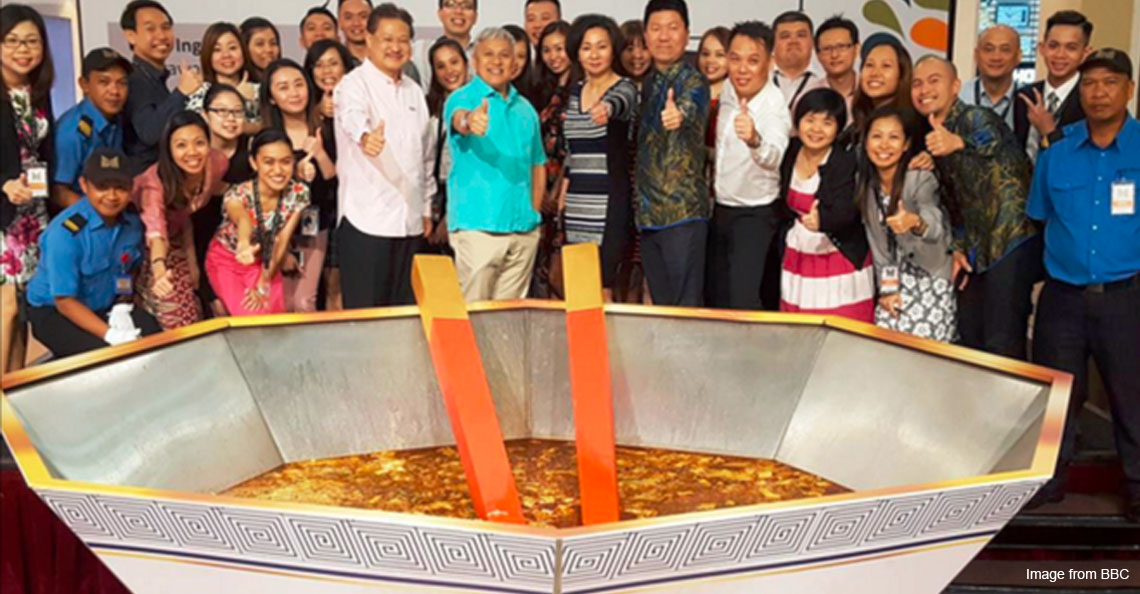
- 1.1KShares
- Facebook1.1K
- Twitter1
- LinkedIn3
- Email6
- WhatsApp6
UPDATE [3 Nov 2016]: We’re sure you’ve heard about the shopping centre in Kuching that threw away 600kg of Sarawak laksa after breaking the country’s record for popular street food. When social media went nuts angry over what they did, the mall apologised, citing safety reasons. They couldn’t give it away coz they had been advised to maintain the soup at a certain temperature and the giant bowl of laksa started to smell.
It took 15 cooks and 18 hours to prepare the dish, which was equivalent to 1,500 regular sized bowls. It contained 225kg rice noodles, 100kg laksa paste, 90kg prawns, 1,008 eggs, 90kg bean sprouts and 80kg chicken. 🙁
—-
*The article was originally written with the title ‘6 ways to stop food wastage during Ramadan’
For a country that loves food so much, we’re sure not great at SAVING it. 😐 On average, the Sun reports that we waste 8,000 tonnes of food daily. But during Ramadan, the figure goes up to…. 270,000 tonnes throughout the month! That’s equivalent to 30 KLCC towers stacked up, but more importantly, it’s enough to feed 180 MILLION PEOPLE a day.

There’s even less comfort for us to learn that HUNGER kills more people every year than AIDS, malaria and tuberculosis combined. When our fellow human beings don’t have enough to eat and with 21,000 people worldwide dying of hunger every day, how can we waste 270,000 tonnes of food?! You know what’s the horrible reality of all this? There children in Malaysia who resort to glue-sniffing to stave off hunger pangs. Those of us who are blessed with so much, we may not understand what it’s like to starve – apart from reading Oliver Twist and going “aww” at this line:

But here’s a short film to show you how grateful underprivileged families are when people bring them food refuse. Yes, they’re grateful even for REFUSE.
OK, we were officially bummed out… until we found this news by Coconuts KL and a bunch of other efforts to save food. There’s a silver lining after all.
1. The charity fridge you can give and take food
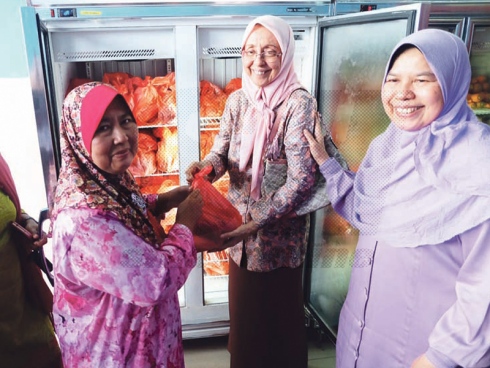
This is the story Coconuts KL covered that was first reported on Sinar Harian. Ampang MP Zuraida Kamaruddin found a way to kill 2 birds with 1 stone – feeding the needy and reducing food wastage. The ‘Peti Ais Rakyat’ project will see participating restaurants donate excess food to a charity fridge for underprivileged families.
It’s the first time anything like this has been done in Malaysia. A man in Hail, Saudi Arabia also did the same, putting a fridge right outside his house. For now, Ampang is doing the trial run, but the Selangor government hopes to roll out this service state-wide.
“Fresh food like chicken, fish, beef, fruit, and vegetables should be packaged and labelled properly. Anyone who feels they need some help in stocking up on food for their households can turn up and take what they need. Everything is done by the people, for the people.” – Zuraida, Coconuts KL
One of the fridge’s is placed at the Ampang Satay Station outlet. Donation times run from 9am to 11pm, while food can be collected by the needy from 7pm to 11pm. We’re extremely excited to see this project succeed in epic proportions.
2. The NGO donating halal food for the hungry
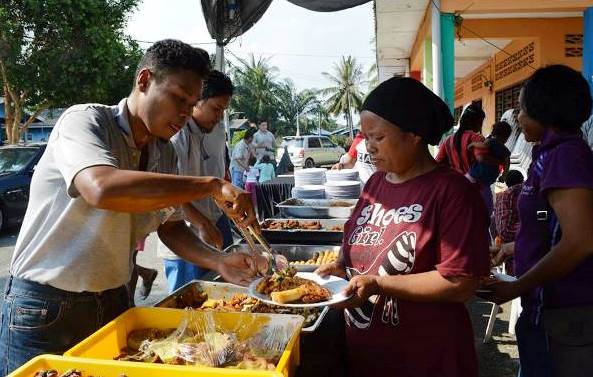
The Food Aid Foundation is doing amazing work as well, feeding the poor and needy. They collect surplus cooked halal food, non-perishable halal food and uncooked, raw food. The people who donate these to them are hotels, restaurants, bakeries, food manufacturers, importers, wholesalers, and markets. So they’re actually an NGO that operates as a ‘foodbank’.
The foundation has a central kitchen where they process everything before distributing it to orphanages and welfare homes, which are their main focus. They hope that this will ease food bills and these homes can use the money elsewhere like improving facilities. Ultimately, they will be able to house more needy people. But it’s not just that, Food Aid Foundation has aided emergency relief such as the east coast flood too. It’s actually pretty well run. Here’s a flow chart of how things run. In an interview, its founder Rick Chee said:
“In the long run, I’d like to be able to document the process and to duplicate depots in other parts of Malaysia. Our short term goals include being able to work with the food industry to establish a comprehensive, integrated and sustainable long-term solution in feeding the needy.” – Rick Chee, founder of Food Aid Foundation, nourish!
3. The government working to stop food waste
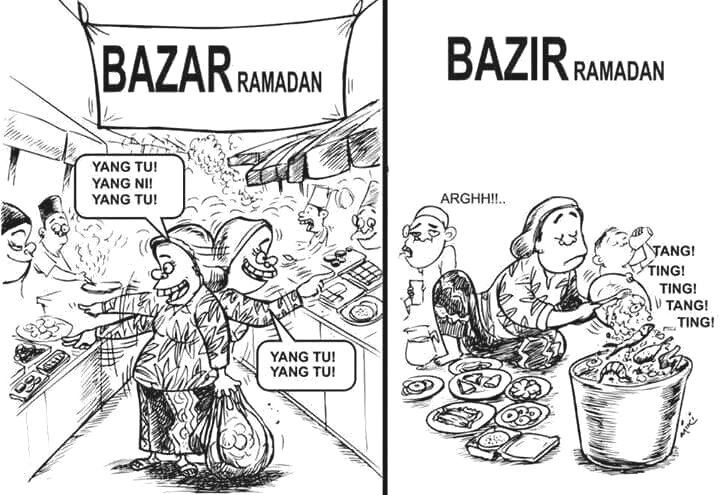
Well that name’s a mouthful, but it’s exactly what SWCorp (for short) aims to do – to fill the mouths of the poor with food. The thing about SWCorp is, they’re the government body that also deals with our other waste as well, so it’s not just food, food, food. But when it comes to food, SWCorp said that they’ve noticed it to be the most worrying trend of waste:
“Food leftovers are the highest component in the solid waste composition scale at 45%, while the cost of managing solid waste in the states under SWCorp reached RM1.4 billion last year.” – Datuk Ab Rahim Md Noor, CEO of SWCorp, The Malaysian Insider
To combat this, the organisation will implement a couple of initiatives, including the Mindset Transformation Programme an agreement with hotels and eateries to donate leftovers to welfare institutions. Especially from hotel buffet spreads due to over-preparation.
4. The volunteers feeding 400 poor families
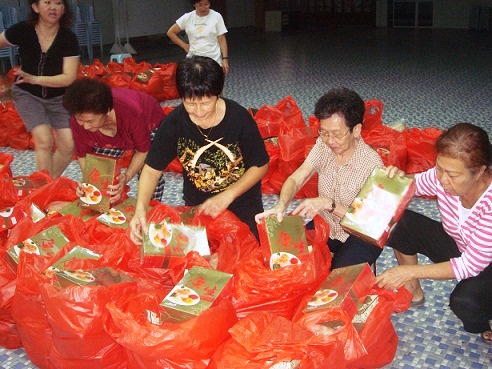
Food Bank for the Poor, formed in August 2009, is a food collection and distribution centre run by Grace Community Services (GCS). Currently, it feeds 400 families in the Klang Valley. It was a natural progression after its street feeding programme which started in 2002. Someone donated industrial freezers and chillers, then someone else donated a chilled van, so this enabled them to collect cooked food where previously they could only take packaged food.
But Public Relations and Fundraising Director David Jansen relates how the job can be emotionally trying. “The recipients of the foodstuff earn below RM1,000 per household. Through interviews and visitations, we would be able to verify their eligibility. We don’t want food to get into the wrong hands because there are people who resell the food items,” he explained. They’ve experienced a case like that before. A young mother returned in tears a day after receiving a can of milk formula because her husband had sold it to feed his drug addiction. So now Food Bank marks the tins, cans and bottles of food.
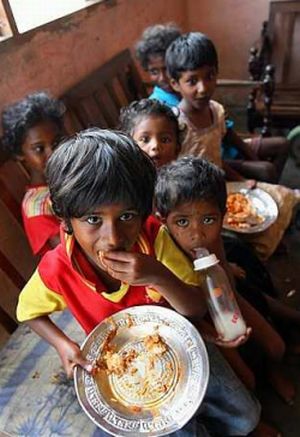
Another family under Food Bank’s aid is Mary S. and her children, who were abandoned by the dad. The organisation was referred to them by a pedestrian who saw the children scrabbling for food on a sidewalk.
“The food bank relies on donations. So much food is wasted every day. We appeal to restaurants, hotels and bakeries not to throw out their unsold food, but to give it to the food bank where it’ll be used within 24 hours.
We welcome food in any form, including un-served foods left over from weddings and functions that is still fresh.
We also provide indemnity forms so donors are not held responsible in case some of the food goes bad – which has not happened, as we carefully check all food before it is distributed.” – Henry K. Pillai, Chairman of GCS, The Star
5. The French bakery giving free bread at 6pm
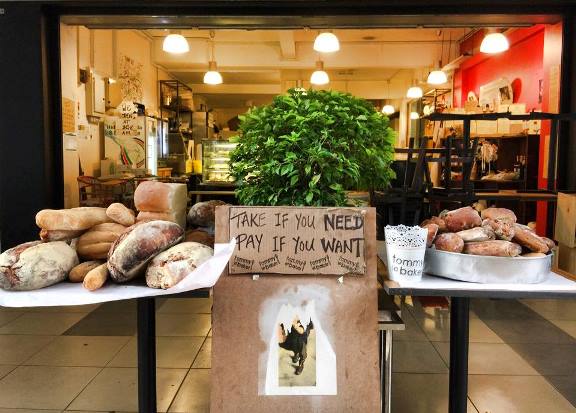
On 18 June, Tommy le Baker, a bakery known for their French-style breads along Jalan Ipoh, KL posted on their Facebook:
“Same as my old shop, everyday after 6pm, please help yourself to the bread. Drive through Viva Residency and you’ll see my new shop. Bring your own bags. Thank you.” – Tommy le Baker
Better to feed hungry people on the street than throwing out the unsold extras by the end of the day. Even customers were happy with his economical decision. Here are some of their replies:

6. The kids who are composting leftovers
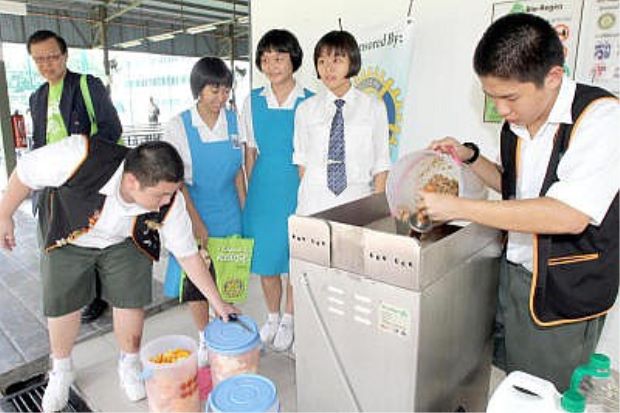
There is another way of using leftovers besides feeding the hungry. Heng Ee High School in Penang found a way to turn leftovers from their canteen into fertiliser. Sponsored by the Rotary Club of George Town, a RM18,800 Bio-Regen Instant Food Conversion Unit was installed in the school where the Interact Club students take turns handling the waste. It’s believed to be the first project of its kind in a Malaysian school.
Brandon Wee, the club President related how it was done to The Star. He empties noodles, rice, fruit peels, vegetables and small pieces of bones from a bucket into the machine. Then adds bokashi fermentation microbes and bio-cleaners and starts grinding the mixture. The ground output transferred through a pipe into 3 large retention tanks where it is stored for about 1 month for fermentation and turned into fertiliser.
Subang Jaya Municipal Council (MPSJ) has already started on this practice too, but their machine is more advanced. It runs on electricity and can compost stuff within 48 hours.
The good news is, DBKL is also planning to process leftover food into compost starting next year. “I hope the food wastage problem can be addressed next year by processing leftover food into compost,” said Mayor Tan Sri Ahmad Phesal Talib, describing the problem as having reached critical level. He added that the compost can help to reduce expenses in enriching soil.
OK enough wasting food, what can we do to stop this?
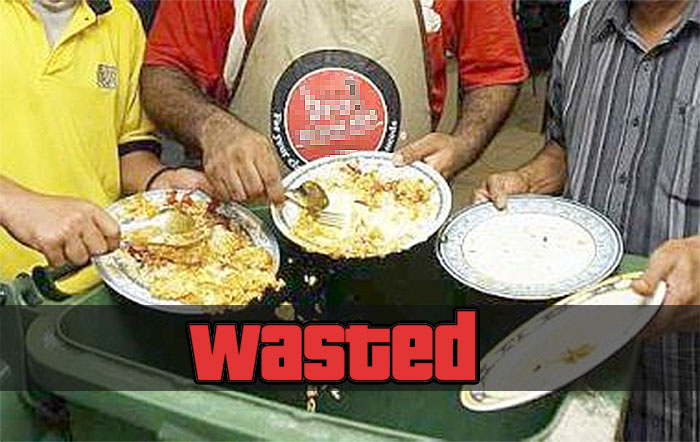
We can try this:
- If you have a house party or wedding – Instead of scrimping on food or marah-ing people for not RSVP-ing, check if the caterer donates surplus food to charity. If not, we can pack whatever we can’t finish and give them to homes ourselves.
- Donate close-to-expiry stuff – If your cupboards are full of canned or packaged food that is close to expiring and you won’t be able to use everything in time, give it to charity. In fact, if you give it to your neighbours or relatives, it’s waaay better than dumping it.
- If you own a restaurant or bakery – You can do what Tommy le Baker did. And if you work in a hotel, suggest la to your boss. Some even suggest that restaurants and hotels FINE customers who leave food on their plates. To our experience, a few steamboat restaurants already exercise that.
- Legislate it – The Consumers Association of Penang urged for legislation to penalise food ‘macro-wasters’, namely hotels, large eateries and factory canteens.
- Compost excess food – If you are really sure your leftovers are past human ability to digest it safely – as in, if it looks like a science project, then compost it. Hopefully MPSJ and DBKL’s efforts can start a good example nationwide to install compost machines everywhere.
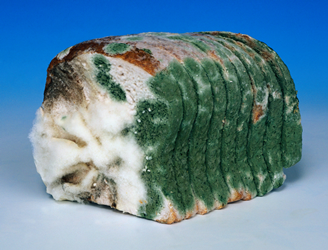
Thankfully, Malaysia is not among the top countries with the highest food wastage, phew! But many countries are beginning to take food wastage seriously. For example, the UAE has launched a campaign in Dubai to collect leftover food and distribute it to poor families during Ramadan. Closer to home, Singapore had long ago made major hotels and restaurants give excess food to their staff. Currently, they’re piloting 2 programmes to recycle food waste into either compost or water.
In other places around the world, some countries have apps to help streamline the process of food donations, such as Feeding Forward in the US. The creators are hoping that the app will go global. We for our part would like to see Malaysians using an app like that here.
No matter how we choose stop waste – whether giving it to someone else to eat, or composting it – at the end of the day, as Shanmugam, (owner of the Sri Devi’s restaurant in TTDI) put it:
“It’s not about the money. All of us must respect food. It is God’s gift. Many people in the world don’t have food.” – Shanmugam, owner of Sri Devi, The Star
- 1.1KShares
- Facebook1.1K
- Twitter1
- LinkedIn3
- Email6
- WhatsApp6



